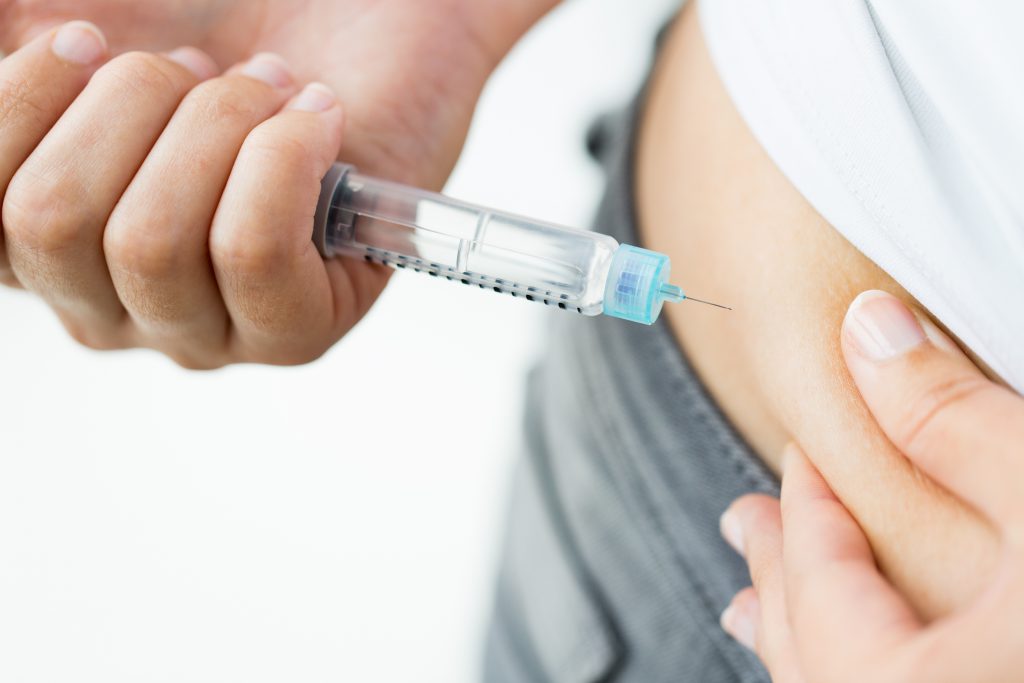A small clinical trial conducted by researchers at the NIHR Newcastle Clinical Research Facility has found that patients with type 1 diabetes who were given an additional insulin injection three hours after consuming a meal may have a decreased risk of developing cardiovascular disease. As cardiovascular diseases – including heart attack and stroke – are the number one cause of death among patients with type 1 diabetes, the findings could help patients better manage the condition.
In addition to helping patients with type 1 diabetes control their blood glucose levels, the additional insulin shot has been shown to reduce lipid levels and signs of inflammation in the blood. These markers can have a damaging effect on arteries and smaller blood vessels, contributing to the development of cardiovascular disease.
Some individuals with type 1 diabetes face a 10-fold increased risk of cardiovascular disease, compared to healthy individuals in the general population. While they’re looking towards conducting a larger clinical trial to verify their findings, the researchers published the results of their initial study in the journal, Diabetes and Vascular Disease Research.
Currently, individuals with type 1 diabetes rely on insulin injections after meals to regulate their blood glucose levels. While the dose of insulin is calculated based on the carbohydrate load of the meal, patients don’t take the fat content into account when deciding how much insulin to inject. Since lipids from food are more slowly metabolized compared to carbohydrates, they can increase blood glucose levels in the long term and contribute to the development of cardiovascular disease.
“Many people with type 1 diabetes struggle to regulate their blood sugar levels around mealtimes, because the fat content in their food is metabolized after their standard insulin injection has lost its potency or has left their blood,” said primary study author Dr. Matthew Campbell, Senior Lecturer in Sport and Exercise Nutrition at Leeds Beckett University. “Most meals in a typical UK diet have a high-fat content, and slower metabolism of this fat can lead to raised blood sugar levels – with the risk of hyperglycemia – and also higher levels of fat and inflammatory markers in the blood, which increase the risk of cardiovascular disease.”
Ten men with type 1 diabetes were involved in the small clinical trial, in which they were fed three meals: one with a low-fat content and two meals with a high-fat content. All three meals contained the same amount of carbohydrates and protein in order to control for their potential confounding factors on blood glucose.
Following consumption of the low-fat meal and one of the high-fat meals, the patients self-administered insulin shots based on the amount of carbohydrates in the meal. Three hours after eating the second high fat meal, the study participants self-administered an additional dose of insulin that was 30 percent of the original post-prandial dose.
After analyzing a series of blood samples collected from the patients every 30 minutes until the 6-hour post-meal mark, Campbell and his colleagues found that glucose, lipid and inflammatory marker levels were all elevated. However, after the additional insulin injection – as with after consumption of the low-fat meal – the measured blood markers were stabilized.
“Improving the sugar and fat levels in the blood after eating is important for the long-term health of the heart and blood vessels,” said study author Dr. Daniel West, a Newcastle University Research Fellow. “But calculating insulin injection dose based on carbohydrates alone is clearly too simplistic, as most people eat meals that include fat and protein too.”
Since the clinical trial involved a small sample of patients, the generalizability of these findings to all patients with type I diabetes is limited. However, if future large-scale clinical trials confirm these results, recommendations for disease management could be updated to include additional doses of insulin.
“Our findings show that, after a high-fat meal, an extra dose of insulin provides a very simple way of both regulating blood sugar levels for short-term health and protecting against the long-term risks of cardiovascular disease,” said Campbell. “We feel strongly that the advice given to people with type 1 diabetes needs to be updated to take this new information into account.”











Join or login to leave a comment
JOIN LOGIN